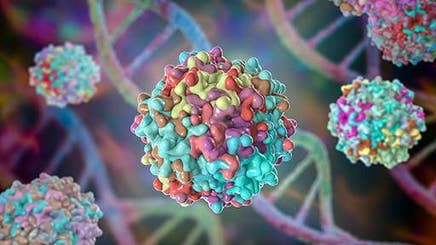
A lung tropic AAV vector improves survival in a mouse model of surfactant B deficiency

Surfactant Protein B (SP-B) deficiency is an uncommon, autosomal recessive lung disorder in term infants. This inability to produce SP-B leads to progressive, lethal, hypoxemic respiratory failure in the first year of life. The current standard of care is a lung transplant although rare due to availability of prenatal donor lungs. A compelling argument exists for gene therapy to treat this disease, as de novo protein synthesis of SP-B in alveolar type 2 epithelial cells is required for proper surfactant production.
Learn how researchers designed an adeno-associated virus (AAV) 6 capsid that demonstrates efficiency in lung epithelial cell transduction in a mouse model using imaging with the IVIS® SpectrumCT in vivo optical imaging system.
For research use only. Not for use in diagnostic procedures.
To view the full content please answer a few questions
Download Resource
A lung tropic AAV vector improves survival in a mouse model of surfactant B deficiency




























